第91章 Chapter XVII(8)
Hirst observed that he had listened to every word of the sermon, as he could prove if Hewet would like a repetition of it; and he went to church in order to realise the nature of his Creator, which he had done very vividly that morning, thanks to Mr. Bax, who had inspired him to write three of the most superb lines in English literature, an invocation to the Deity.
"I wrote 'em on the back of the envelope of my aunt's last letter," he said, and pulled it from between the pages of Sappho.
"Well, let's hear them," said Hewet, slightly mollified by the prospect of a literary discussion.
"My dear Hewet, do you wish us both to be flung out of the hotel by an enraged mob of Thornburys and Elliots?" Hirst enquired.
"The merest whisper would be sufficient to incriminate me for ever. God!" he broke out, "what's the use of attempting to write when the world's peopled by such damned fools? Seriously, Hewet, I advise you to give up literature. What's the good of it?
There's your audience."
He nodded his head at the tables where a very miscellaneous collection of Europeans were now engaged in eating, in some cases in gnawing, the stringy foreign fowls. Hewet looked, and grew more out of temper than ever. Hirst looked too. His eyes fell upon Rachel, and he bowed to her.
"I rather think Rachel's in love with me," he remarked, as his eyes returned to his plate. "That's the worst of friendships with young women--they tend to fall in love with one."
To that Hewet made no answer whatever, and sat singularly still.
Hirst did not seem to mind getting no answer, for he returned to Mr. Bax again, quoting the peroration about the drop of water; and when Hewet scarcely replied to these remarks either, he merely pursed his lips, chose a fig, and relapsed quite contentedly into his own thoughts, of which he always had a very large supply.
When luncheon was over they separated, taking their cups of coffee to different parts of the hall.
From his chair beneath the palm-tree Hewet saw Rachel come out of the dining-room with the Flushings; he saw them look round for chairs, and choose three in a corner where they could go on talking in private. Mr. Flushing was now in the full tide of his discourse.
He produced a sheet of paper upon which he made drawings as he went on with his talk. He saw Rachel lean over and look, pointing to this and that with her finger. Hewet unkindly compared Mr. Flushing, who was extremely well dressed for a hot climate, and rather elaborate in his manner, to a very persuasive shop-keeper. Meanwhile, as he sat looking at them, he was entangled in the Thornburys and Miss Allan, who, after hovering about for a minute or two, settled in chairs round him, holding their cups in their hands.
They wanted to know whether he could tell them anything about Mr. Bax.
Mr. Thornbury as usual sat saying nothing, looking vaguely ahead of him, occasionally raising his eye-glasses, as if to put them on, but always thinking better of it at the last moment, and letting them fall again. After some discussion, the ladies put it beyond a doubt that Mr. Bax was not the son of Mr. William Bax.
There was a pause. Then Mrs. Thornbury remarked that she was still in the habit of saying Queen instead of King in the National Anthem.
There was another pause. Then Miss Allan observed reflectively that going to church abroad always made her feel as if she had been to a sailor's funeral.
There was then a very long pause, which threatened to be final, when, mercifully, a bird about the size of a magpie, but of a metallic blue colour, appeared on the section of the terrace that could be seen from where they sat. Mrs. Thornbury was led to enquire whether we should like it if all our rooks were blue--"What do _you_ think, William?" she asked, touching her husband on the knee.
"If all our rooks were blue," he said,--he raised his glasses; he actually placed them on his nose--"they would not live long in Wiltshire," he concluded; he dropped his glasses to his side again.
The three elderly people now gazed meditatively at the bird, which was so obliging as to stay in the middle of the view for a considerable space of time, thus making it unnecessary for them to speak again. Hewet began to wonder whether he might not cross over to the Flushings' corner, when Hirst appeared from the background, slipped into a chair by Rachel's side, and began to talk to her with every appearance of familiarity. Hewet could stand it no longer.
He rose, took his hat and dashed out of doors.